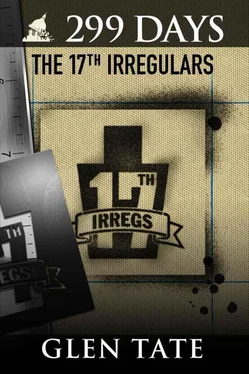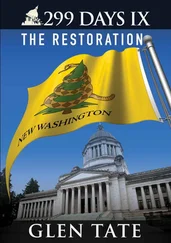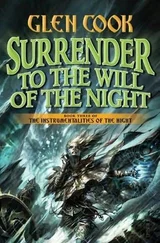“Would you accept an officer’s commission in the Free Washington State Guard, Mr. Matson?” Hammond asked, knowing the answer.
“Yes, sir. With pride,” Grant said.
“You know the consequences of this?” Hammond asked very seriously. Because it was a life-or-death decision.
“Yes, sir. I am a traitor and will be executed if the Limas win,” Grant said solemnly. He paused and then said, “Which means we have to win.”
Hammond liked that spirit. “Will we?” he asked Grant.
“Yes, sir,” Grant said with a nod. “Because we have the support of the population. The Limas don’t. They might have soft support, but it’s not deep or long term. The people will tolerate them as long as the semis are rolling. Take that away and there goes any support they have. We, sir, will do what the Limas can’t: give people long-term hope. We will get things running with hard work, instead of stealing things and then handing them out to people.”
Hammond was even more impressed. This Matson guy understood exactly what was going on. He just summarized everything Hammond thought about why the Patriots would win. It was uncanny; it was like Matson was in Hammond’s brain.
Hammond decided to test Grant some more. “You say the ‘support of the population,’” Hammond said. “Where did you get that?”
“George Washington and Mao, sir,” Grant said. “An unusual pair. But they said basically the same thing: popular support is key. Logistics is key. The two are combined. Popular support is the key to logistics and logistics is the key to winning a war like this.”
Hammond couldn’t resist one more test question. “Do you think Mao really wrote ‘On Guerilla War’?” Hammond asked, deeply probing Grant’s knowledge of military theory.
“Oh, no, sir,” Grant said. “It was all Sun Tzu and probably some Communist Party hacks. But it works. He got a lot right in that book, except the part about the government having the right to rule people’s lives.”
“Crap, Lieutenant,” Hammond said, no longer able to contain his glee at how much Grant knew. “We need to have a drink when this thing is over. Wow.” Hammond caught himself and realized that he shouldn’t lavish praise on a subordinate, especially a brand new one who was basically a civilian, but what the hell.
Grant was flattered, but assumed he was being flattered just to get him to join, so he didn’t let the compliments go to his head. He got down to business. He had a bunch of questions, but he didn’t ask them out loud. Grant wanted to know if he would be in day-to-day command of the guerilla unit because he wasn’t remotely qualified to do that; Ted was. How long was Grant’s commitment? He assumed commissions could be resigned. He was an irregular commander and the irregulars were like the militia in the Revolutionary War: they could just leave if they wanted. Would he get paid? Not that he wanted the money, but it was a natural question to ask. Would he have to keep his commission a secret? He assumed so. Would he have to wear a uniform? He hoped not. He was about to ask Hammond these questions.
Hammond’s anticipated Grant’s questions and said, “I imagine you have a few questions about the details of your commission, Lieutenant. Sgt. Malloy will answer those questions later, because you and I have a meeting to go to in a few minutes.”
“Yes, sir,” Grant said. “Thank you for commissioning me.”
Grant paused, “Permission to speak with candor, sir?” Grant had learned that in Civil Air Patrol.
“Granted,” Hammond said.
“I’m supposed to do this, sir, and so are you,” Grant said. “You sense it too, don’t you Colonel?”
“Yes,” Hammond said, stunned that Grant could pick up on what he was feeling. “I most certainly do.” This was spooky, Hammond thought. They were on the same wavelength of “we’re supposed to do this.”
Hammond concentrated on getting ahold of himself. He was trying not to show any emotion. Hammond closed the file and said, “We have a meeting to get to.”
“Yes, sir,” Grant said. He remembered from Civil Air Patrol that he should not turn his back on a superior officer until he was dismissed, so he waited to be dismissed.
Hammond, seeing that Grant was waiting to be dismissed, said, “Oh, you’re coming to the meeting with us, Lieutenant.”
Chapter 200
The 17th Irregulars
(July 21)
Everyone got their things together and waited for Lt. Col. Hammond to stand. He did, and dismissed them by saying, “To the hall, gentlemen.” He looked at two female soldiers and said, “And ladies, of course.” Everyone started walking out.
Ted said quietly to Grant, “Nice job, Grant. Hammond likes you.”
“Where are we going?” Grant asked. He was all business tonight. He didn’t want to start patting himself on the back when there was important work to do. He had the quite boat ride back that night to think about how well things went.
“The community hall, a block away. It’s where we have big meetings,” Ted said.
“What’s the meeting about?” Grant said. It was 1:30 a.m.
“You’ll see, Lieutenant,” Ted said with a smile.
“Lieutenant” sounded so weird. The idea of him commanding a military unit seemed so crazy. “You’re in day-to-day command of the unit,” Grant said softly to Ted. “You know that, right?”
“Roger that, Lieutenant,” Ted said. “We’ll talk about it later, but don’t worry. You don’t have to be some battlefield commander.”
“Thank God,” Grant said. As confident and calm as Grant had been the whole night, he had been terrified of being responsible for knowing how to command a combat unit. But, that’s what Ted and Sap were for.
The hall was not visible from the marina so Grant hadn’t noticed it when he first got off the boat. But, hidden away, was a big community center. It looked modern, probably built with stimulus money from a few years ago. Might as well get something out of that money, Grant thought. How ironic: using a hall built with stimulus money to plan how to topple the government that built it.
The closer they got to the hall, the bigger the crowd became. Most were military people, but there were lots of civilian-looking people like Grant. Some of them looked like true civilians, in pure civilian clothes, not the tactical clothes Grant had on. There were many contractor-looking guys, but they were probably SF, like Ted and Sap.
The crowd settled into the community hall. It seated about a hundred and was almost full. A soldier was sitting at a desk, checking names at the entrance. It was Grant’s turn.
“Grant Matson,” he said. Ted mouthed to the solider, “He’s with me.”
The soldier looked on the list. “Yes, sir, here’s your name. Welcome.”
“Welcome to what?” Grant asked Ted.
“You’ll see, Lieutenant,” Ted said. “You’ll see.” It continued to seem so odd for Ted to be calling Grant “Lieutenant.” It was also odd that Ted could instantly go from calling Grant by his first name to “Lieutenant” without even thinking.
Everyone sat down. Most people didn’t seem to know each other. People were upbeat but fairly businesslike. There were others in the room that appeared like Grant, unsure of what the meeting was about.
Grant was surprised to see a large group of Arab men in a corner. They were dressed in American clothes. They kept to themselves and talked in a language Grant couldn’t understand. What were they doing there? Grant wasn’t a racist or anything, but weren’t there Muslim terrorists out there blowing things up? Had the Patriots joined some anti-Loyalist alliance with the Muslim terrorists? That was not what Grant signed up for.
Читать дальше











